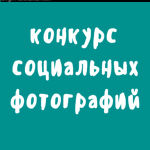LAW & INVESTMENT. Judicial Reform in Action
New Investment Dispute Panels Were Established in Kazakhstan In 2016
 Judicial reform in Kazakhstan got off to a very good start at the beginning of the new year and every indication is that it will continue throughout the rest of 2016. While a number of important changes have taken place, the most significant development from the perspective of investors is the creation on 1 January of two new court panels having exclusive jurisdiction to hear "investment disputes." The first investment dispute panel (collegium) is at the Astana City Court and the second investment dispute panel is at the Supreme Court of Kazakhstan. These "Investment Panels" are the first of their kind in the CIS countries and demonstrate Kazakhstan's seriousness about judicial reform and about reducing practical barriers facing the country's investors.
Judicial reform in Kazakhstan got off to a very good start at the beginning of the new year and every indication is that it will continue throughout the rest of 2016. While a number of important changes have taken place, the most significant development from the perspective of investors is the creation on 1 January of two new court panels having exclusive jurisdiction to hear "investment disputes." The first investment dispute panel (collegium) is at the Astana City Court and the second investment dispute panel is at the Supreme Court of Kazakhstan. These "Investment Panels" are the first of their kind in the CIS countries and demonstrate Kazakhstan's seriousness about judicial reform and about reducing practical barriers facing the country's investors.
The Investment Panels grew out of President Nursultan Nazarbayev's "100 Specific Steps on Implementation of Five Institutional Reforms" aimed at making Kazakhstan one of the world's 30 most developed nations. 19 of those Steps dealt with the rule of law and reforming Kazakhstan's judiciary, a stark reminder of the importance of a fair and independent judiciary to the development of any country. One of the President's Steps called for creation of separate legal proceedings for investment disputes and the formation of a dedicated investment panel of the Supreme Court for resolution of disputes involving large investors.
The purpose of the Investment Panels is to strengthen Kazakhstan's investment climate by creating an impartial and experienced forum for resolving disputes between investors and the state. This is expected to give existing and potential investors more confidence that their investments will be protected, thereby encouraging them to make new investments or to expand their existing investments. It is also hope that the Investment Panels will be a feasible alternative to international arbitration, at least for small and medium-size investment disputes.
Prior to 1 January, investment disputes were required to be brought in the appropriate regional specialized interdistrict economic court. There are 16 such courts: one in each region of Kazakhstan, as well as one in Astana and Almaty. Their decisions are subject to three levels of appeal. The jurisdiction of these courts covered nearly all types of commercial disputes and were not limited to investment disputes. The perception among many investors is that many of the judges in those courts were not sufficiently qualified to hear complex investment disputes. The perception also is that judges in those regional courts tend to be biased in favor of aggressive local state officials, particularly in the western and southern regions where much of Kazakhstan's subsoil wealth is concentrated.
Under the new Civil Procedure Code, which took effect on 1 January:
(i) The new Investment Panel at the Astana City Court was established and was given exclusive jurisdiction to hear as the first instance court all "investment disputes" (except those within the Supreme Court's jurisdiction) and "other disputes between investors and state authorities relating to the investor's investment activity." There are two levels of appeal from decisions of this Investment Panel, including an appeal to the Supreme Court's Investment Panel which will act as the court of appeal.
(ii) The new Investment Panel at the Supreme Court was established and was given exclusive jurisdiction to hear as the first instance court "investment disputes" with "major investors." A major investor is any investor whose investment is at least two million monthly calculation indices (currently about $12.8 million). There is only one level of appeal from decisions of this Investment Panel (the Supreme Court's cassation panel). The Supreme Court's Investment Panel does not hear as the first instance court "other disputes" between a major investor and state authorities relating to the major investor' investment activity; these are heard by the Astana City Court's Investment Panel as the court of first instance.
The 2 new Investment Panels in Astana offer the following advantages to investors:
(i) They take jurisdiction to hear investment disputes away from the regional courts, thereby protecting investors having investment disputes from any biases in those courts in favor of local officials.
(ii) The judges appointed to the two Investment Panels are considered to be among the best in Kazakhstan. By having all investment disputes heard by only one or two panels of judges, those judges are expected to become experts in such disputes. Further the Investment Panel will receive regular specialized training in relevant issues. Already a program for training the Panels' judges on tax legislation and tax disputes is in place and proposals for training on environmental pollution issues and IP matters are under consideration. These are probably the three areas giving rise to the greatest number of investment disputes.
(iii) By reducing the possible number of appeals, the Investment Panels result in quicker resolution of investment disputes.
Some serious concerns about the jurisdiction of the Investment Panels arose when the Civil Procedure Code took effect, because it does not define the terms "investor," "investment activity" and "investment dispute." So it is necessary to rely on the definitions of those terms contained in the Entrepreneurial Code adopted in October 2015, where those terms are used for a different purpose.
One concern is that the Entrepreneurial Code defines "investment dispute" as a dispute arising from "contractual obligations" between investors and governmental authorities relating to the investors' investment activity. On its surface, this definition is satisfactory, but related provisions of the Entrepreneurial Code interpret "contractual obligations" to mean "investment contracts" in the form usually entered into with the state investment authorities based on the authorities' model form. Only a relatively small number of investors have such investment contracts. Most of the largest investors in Kazakhstan, especially in the natural resources sector, operate through other forms of agreements with state authorities (concession agreements, subsoil use contracts, production sharing agreements, privatization agreements, etc.). So, relying on the Entrepreneurial Code's definition would have drastically limited the cases heard by the Investment Panels and would have prevented the Panels from hearing many of the biggest and most important investment disputes.
Another concern is that neither the Entrepreneurial Code nor the Civil Procedure Code gives clarity to what is meant by "other disputes … related to an investor's investment activity," which is the second type of dispute which the Astana City Court's Investment Panel may hear as a first instance court.
In March 2016 the Supreme Court took the highly unusual step of addressing these concerns by publishing an "Explanatory Note" which clarifies how these and other terms will be interpreted by the courts. Two points in the Explanatory Note are particularly important:
First, the Supreme Court stated that "contractual obligations related to an investor's investment activity" includes, in addition to investment contracts, other forms of contracts for implementation of an investment, including concession agreements, contracts of public-private partnership, and any other contract for the implementation of an investment (regardless of its name) so long as it contains the investment object, the size of contributions and other material terms.
Second, the Supreme Court stated that "investment disputes" include among other things disputes relating to the tax, customs, social, environmental and other obligations arising from the agreement on the implementation of the investment.
Both of these interpretations are critical to the success of the Investment Panels. The first interpretation will allow the Panels to hear disputes arising under most types of contracts commonly used for investments, including subsoil use contracts, PSAs and concession agreements. The second interpretation will allow the Panels to hear the types of disputes most often arising as a result of such contracts (in particular tax and environmental disputes), rather than only disputes concerning compliance with the contract's terms.
It is an especially positive sign for the investment community that the Chairman of the Supreme Court, Kairat Mami, acted pro-actively by deciding to address these concerns quickly and directly through the Supreme Court's Explanatory Note and by having the Explanatory Note interpret the relevant terms broadly enough to allow the Investment Panels to hear the types of investment disputes which are of the greatest concern to Kazakhstan's investors. The Supreme Court could have simply have deferred to Parliament to resolve these concerns. Deferring to Parliament would have resulted in nominal compliance with the 100 Steps, by establishing the Investment Panels, but it would have changed little in practice since most investment disputes would have remained with the regional courts. Chairman Mami, a former General Prosecutor, has steadily earned a reputation as a quiet reformer since beginning his reappointment as the Supreme Court Chairman in 2013. The Explanatory Note sends a clear message that real judicial reforms, not just cosmetic reforms, are likely to continue.
During the first 4-1/2 months following establishment of the two Investment Panels, 14 claims were filed by major investors against state authorities with the Supreme Court's Investment Panel. No claims were filed against major investors by state authorities. Remarkably, 11 of those 14 claims were filed against regional tax authorities in the country's oil-producing regions, with at least 10 of the claims challenging tax audits. A further claim was filed against the regional environmental authorities in one of the oil-producing regions. Most of the major investors in these 12 cases appear to be in the oil and gas sector.
As of mid-May, the Supreme Court's Investment Panel had issued a decision in only one of the cases brought by major investors. According to public information, the Panel satisfied the claim of an oil company to invalidate the results of a tax audit assessing unpaid corporate income tax and fines in an amount equivalent to approximately $4.1 million. In addition to invalidating that assessment, the Investment Panel also ordered the regional tax authorities to reimburse the company in an amount equal to 10% of the claim for the major investor's expenses in bringing the claim, the maximum reimbursement allowed under the law.
While detailed information about the claims is not known, it appears that most, and perhaps all, of the 14 claims brought by major investors involved disputes which would have been ineligible to be heard by the Supreme Court's Investment Panel absent the interpretations set forth in the Supreme Court's Explanatory Note.
As of mid-May, 10 claims were filed with the Astana City Court's Investment Panel, including three claims filed by state bodies against investors. One of those 10 claims (a claim by an investor) had been satisfied, but details about it are not known.
Despite the initial successes of the new Investment Panels, it is too early to know whether they will be successful in achieving their goal of improving Kazakhstan's investment climate by giving investors greater confidence their investments will be protected. The Investment Panels face a number of challenges, including:
(1) Establishing a Record of Impartiality. The factor most important to investors is a track record of impartiality in deciding investment disputes. Unfortunately, it will likely take five or six years to achieve such a track record, because it must be clear that the impartiality has become institutionalized.
(2) Independence. Kazakhstan's courts are not as independent from the country's Government as are the courts in most of the major Western countries. While progress is being made in this regard, the lack of independence of the courts continues to be a barrier to their development.
(3) Systemic Problems. As an integral part of Kazakhstan's court system, the Investment Panels are subject to many of the burdens on other Kazakhstani courts, such as low pay for judges and inadequate funding from the state budget. Improvements at all levels of Kazakhstan's court system will benefit the Investment Panels.
(4) AIFC Financial Court Jurisdiction. A unique challenge facing the Investment Panels may arise from the financial court at the Astana International Financial Center which is expect to begin its work at the beginning of 2018. Currently, the jurisdiction of the AIFC court is not finalized, but such jurisdiction may not be limited to disputes involving AIFC participants and it might include disputes involving other investors in Kazakhstan. This could result in some overlap with the Investment Panels' jurisdiction, possibly leading to healthy competition between the Investment Panels and the AIFC court regarding certain types of investors and certain types of disputes.
(5) Non-Contractual Investment Disputes. Finally, although the Explanatory Note makes it clear that investment disputes can arise out of contracts other than investment contracts with the state investment authorities, many investors would like the jurisdiction of the Investment Panels expanded further to include disputes with the state arising out of non-contractual matters, so that all of their disputes (not just their investment disputes) can be heard by the Panels. Such an expansion of jurisdiction will probably require the action of Parliament.
The establishment of the two Investment Panels, the interpretation of the Investment Panels' jurisdiction by the Supreme Court's Explanatory Note, and the Investment Panels' initial experience during their first few months of operation are all positive developments for Kazakhstan's investors. While challenges remain, it so far appears that the Investment Panels will significantly contribute to improving investors' confidence in Kazakhstan's court system and, thus, strengthening Kazakhstan's investment climate.
CURTIS MASTERS
Curtis is the Director of the Kazakhstan office of the global law firm Baker & McKenzie and has been a resident of Kazakhstan since 1996.
He is a member of the International Council of the Supreme Court of Kazakhstan. In addition, he is a Board member and the Secretary of the Kazakhstan Foreign Investors Council Association.
Previously Curtis was the Co-Chairman of the Legal Working Group of the Foreign Investors Council Chaired by the President of the Republic of Kazakhstan. He also served as a Board member of the American Chamber of Commerce in Kazakhstan.
Curtis is a native of Chicago and is a graduate of Harvard University Law School and the University of Chicago Booth School of Business.










